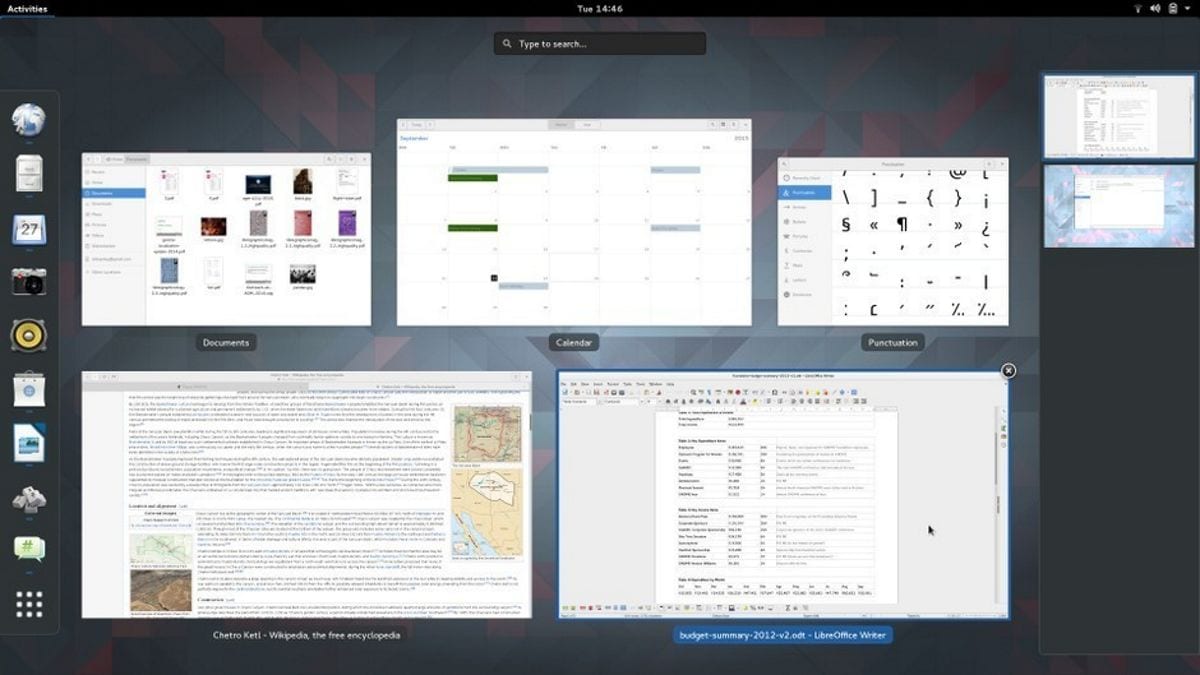
Daniel Robbins, the founder of the Gentoo distribution, who withdrew from the project in 2009 a few days ago he announced the launch of the new version of his Linux distribution current, Funtoo 1.4. For those who do not know about Funtoo should know that this Linux distribution is based on the Gentoo foundation and aims to further improve existing technologies.
The key features of Funtoo include support for automatic compilation of packages from source (packages are synced from Gentoo), use of Git during development, a distributed tree of portages, a more compact format for build manifests and the use of Metro tools to create live versions.
Besides that There are 3 branches of this distribution:
- Stable: Based on the stable branch of Gentoo, which is the one used by default. Commonly used on servers.
- Current: Contains the latest packages on the system. Many of them, based on the unstable branch of Gentoo. According to the Funtoo documentation, it is suitable for daily use.
- Experimental: In addition to being based on the unstable branch of Gentoo, packages cataloged as masked are available for installation, as well as their development versions, commonly with their source code stored in version control systems, such as Git.
Main new features of Funtoo 1.4
In this new release of Funtoo 1.4 most packages were updated Among which the announcement highlights the build tools that were updated to GCC 9.2.
Also the developer highlights that added new kernels debian-sources and debian-sources-lts ported from Debian.
To build the Debian-sources-lts kernel, the USE custom-cflags flag is enabled by default, which triggers additional optimizations. When compiling the kernel from custom configurations tied to the current architecture, the "-march"; options are also added.
While for the case of the desktop environment is proposed to Gnome 3.32 (Even though version 3.34 was released last week).
The framework includes a new subsystem to support OpenGL. By default, the GLX library libglvnd (OpenGL Vendor-Neutral Driver) is used, which is a program manager that redirects commands from a 3D application to a particular OpenGL implementation, making it possible for Mesa and NVIDIA drivers to coexist .
Added new ebuild "nvidia-drivers" with NVIDIA drivers, different from Gentoo Linux ebuild and using nvidia-kernel-modules to install kernel modules. The Mesa package has been updated to version 19.1.4, in which the provided ebuild provides support for the Vulkan API.
The update of LXC 3.0.4 and LXD 3.14 is also highlighted, ebuilds were added to access the GPU from Docker and LXD containers, allowing you to use OpenGL in containers.
Of the other changes that stand out:
- Additional dependency tests and troubleshooting related to them.
- Python has been updated to version 3.7.3 (Python 2.7.15 is also proposed as an alternative). Updated versions of Ruby 2.6, Perl 5.28, Go 1.12.6, JDK 1.8.0.202. Added the Dart 2.3.2 (dev-lang / dart) port specially prepared for Funtoo.
- Server components have been updated, including nginx 1.17.0, Node.js 8.16.0, and MySQL 8.0.16.
- Download and get Funtoo 1.4
For those who are interested in being able to obtain this new version of Funtoo 1.4 should know that the installation images have not been updated for a long time and for the installation it is proposed to use the previous LiveCD with the subsequent manual implementation of Stage3 components and portals.
They can do it from the link below.
Finally in about a month, it is planned to start working on the launch of Funtoo 2.0.
How to upgrade Funtoo Linux from 1.3 to 1.4
Upgrading to Funtoo Linux 1.4 from 1.3 is a relatively straightforward process. For this they have to open the file /etc/ego.conf with a code editor of your preference and we will place the following:
[global] release = 1.4
Then run the following command.
# ego sync
Users are strongly advised to choose a graphics card with the Fondue Mix-In Tool. If you are using Nvidia's proprietary graphics card, you need to run the following command to activate it.
# epro mix-ins + gfxcard-nvidia # emerge -u1 gcc # emerge -u1 binutils # binutils-config -l # binutils-config 3 # source /etc/profile # emerge -u1 glibc
Worldwide update:
# emerge -auDN @world --jobs=3 --exclude dev-lang/perl
Then we must make sure that the default Python version is 3.7 using the following steps.
# esalect python list # eselect python set # eselect python show
Now we will rebuild all modules with the latest version.
# emerge -u1 dev-lang/perl # perl-cleaner --all # emerge -C =dev-lang/python-3.6* # eselect python cleanup
If you are using debian-sources-lts, make the necessary changes to the /etc/boot.conf file and run the following command:
# ego boot update # etc-update # reboot